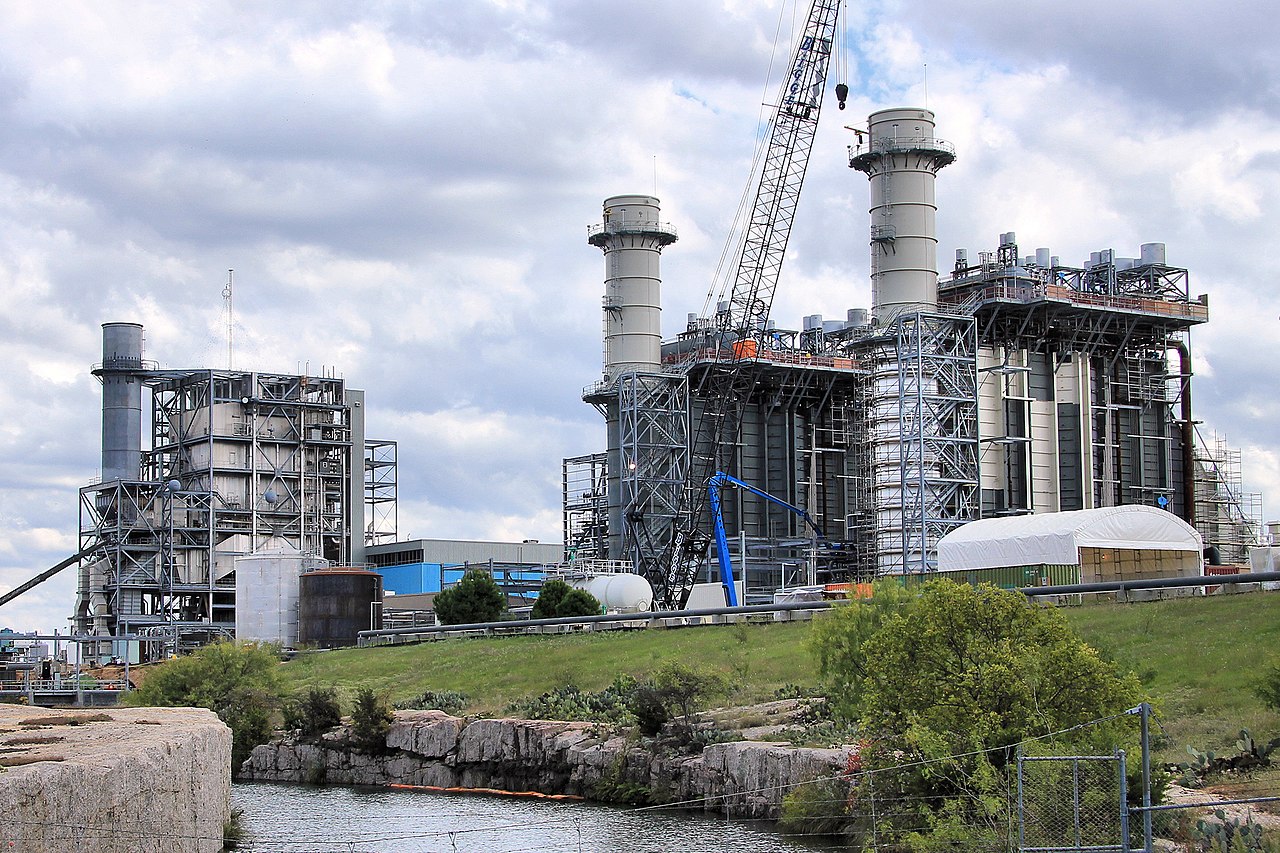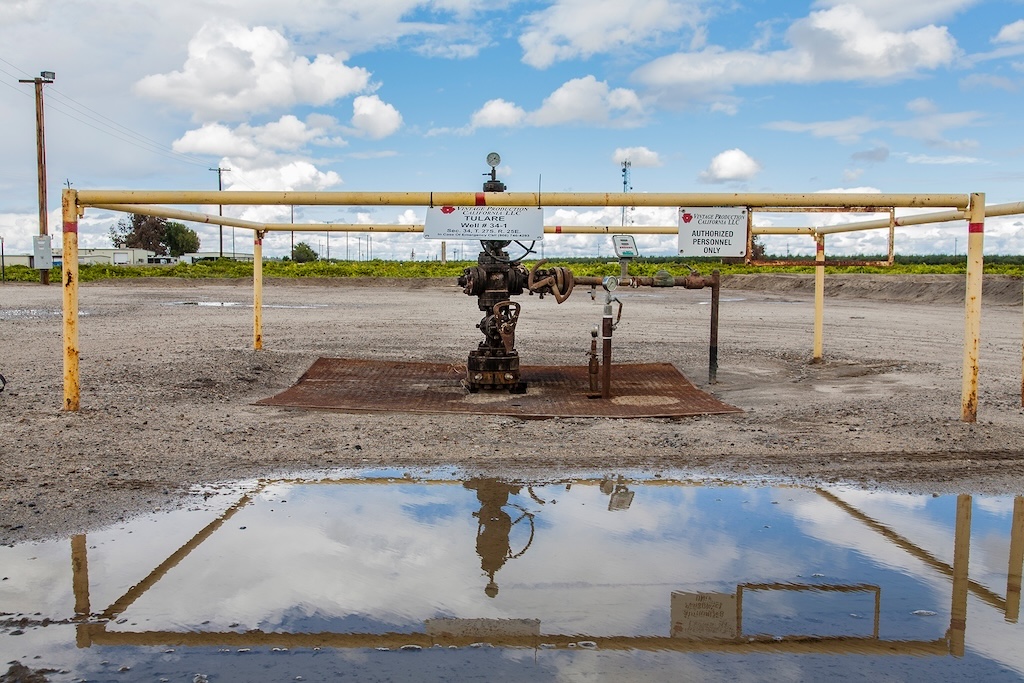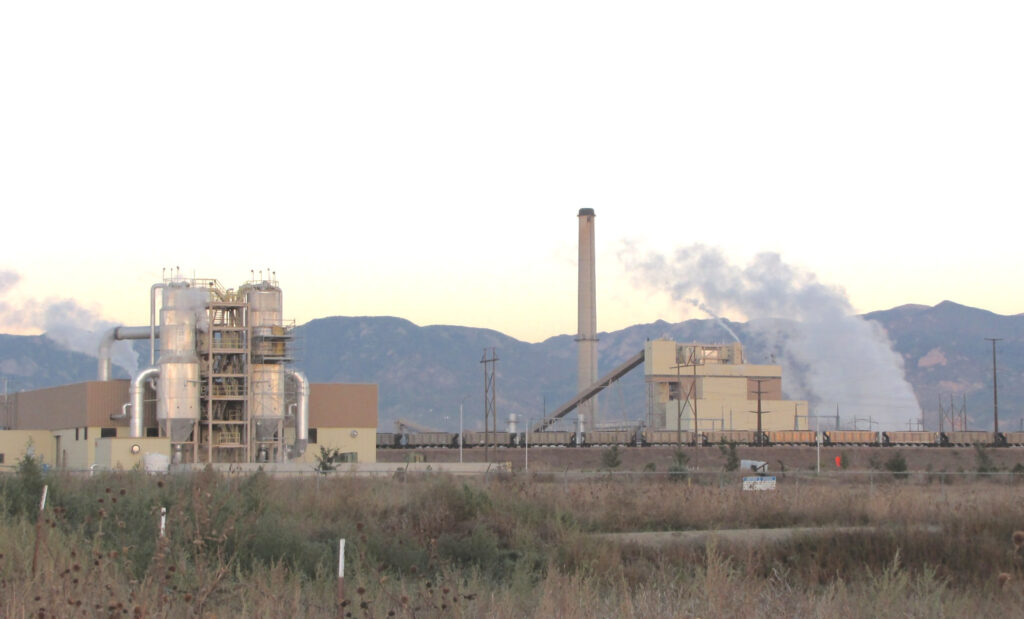In the past two decades, new demand for electricity in Texas has largely been met by wind and solar, making it by far the leader in renewable energy development among U.S. states. But the AI gold rush, combined with a new, statewide subsidy system that prioritizes fossil fuel power, threatens to upend that longstanding dynamic.
A new report from the nonprofit Environmental Integrity Project (EIP) shows a dramatic surge in permit applications for natural gas power plants in Texas — a shift driven in part by the rise of power-hungry data centers linked to the artificial intelligence (AI) boom. And fossil fuel companies are salivating at the opportunity to sell into what amounts to a brand-new market for quick, dirty energy, even as scientists warn about the urgent need to drop carbon emissions.
“Artificial intelligence (AI) data centers are hungry for power, and Chevron is tapping into natural gas to help nourish that appetite,” the Houston-based multinational writes, in a post about powering data centers on its website.
In its inventory, EIP found proposals for 130 natural gas plant projects hoping to come online in the next few years, more than 100 of those entirely new facilities. Together, the facilities could emit the greenhouse gas equivalent of putting almost 27 million new gas-powered cars on the road. If approved, the slate of new methane gas plants alone could increase Texas’ carbon footprint by 13 percent, the analysis found. This fossil fuel boom comes on the heels of the hottest recorded year, the same year when a United Nations report documented over 150 “unprecedented” climate disasters.
In the race to meet Texas’ growing energy demand, the Texas Commission on Environmental Quality (TCEQ) may have permitted plants unlawfully in at least some cases, essentially rubber-stamping applications that require more careful deliberation under the U.S. Clean Air Act, according to the EIP report.
Though Texas’ green energy transition had long been underway, the stage was set for this kind of fossil fuel reversion after 2021’s Winter Storm Uri. The devastating extreme weather event killed 246 Texans and left 10 million residents without power. An analysis by the Union for Concerned Scientists determined that blackouts were disproportionately the result of failures at gas-powered plants, despite misinformation blaming renewables at the time. But when the state legislature established the Texas Energy Fund, a $10 billion program to incentivize new electricity generation, in Uri’s wake, it made the majority of grants and low-interest loans available to facilities that derive energy from “forces under human control.” In practice, this has excluded wind and solar providers from accessing the funds. To date, the program has almost exclusively received applications for natural gas projects, the EIP report found.
Texas is already the largest electricity generator in the country, and it’s also the fastest growing state. Its population surged 1.8 percent between 2023 and 2024. But the state has also proven to be a business-friendly haven for new data center projects — home to more than 400 so far — an influx that’s contributing to the striking new emphasis on natural gas. In 2023, Texas had the second-highest electricity demand from data centers among U.S. states, according to an analysis from the Electric Power Research Institute. In a “high-growth” scenario, Texas’ data center energy demand could more than double in the near term, amounting to 10 percent of its total power use by 2030, according to the Institute.
RELATED: New Wave of Oil and Gas Secrecy Hides Full View of Harms, From “Data Center Alley” to Cancer Alley
EIP’s report found TCEQ has rushed to approve some of these new gas-powered plants, even apparently skirting federal environmental law to do so. Under the Clean Air Act, “major sources” of pollution — those that emit at least 250 tons per year of harmful pollutants like sulfur dioxide, nitrogen oxides, and particulate matter — must install control technologies, notify the public, and provide local communities opportunity to comment through public hearings before a permit is issued.
But 25 of the 130 proposed projects received “standard” general permits, according to EIP, typically reserved for operations with a smaller footprint than a data center. Pollutants like these can cause dangerous respiratory harm, asthma attacks, and premature death, according to the American Lung Association, and research shows developers disproportionately build fossil fuel projects in low income and communities of color, burdening them with the health and social impacts too.
“The state is rapidly issuing the wrong kind of permit for at least a portion of this new wave of gas-fired power plants,” Griffin Bird, the EIP analyst who authored the report, wrote.
Because so many of the plants are still in the early stages, it is difficult to know for sure if they’ve been pushed through using the wrong permits. But EIP found three examples of plants that it says are definitely large enough to warrant a “major sources” permit, but were unlawfully waved through with a standard permit instead. At the same time, EIP reports that these permits had been issued on a “shockingly fast” turnaround time. The two-turbine, 900 megawatt EmberGreen Energy Center plant that EmberClear Energy plans for Wharton, Texas, south of Houston, was approved by TCEQ just 24 hours after the company submitted its application.
“The state is essentially rubber stamping some applications without a meaningful review to ensure compliance with the Clean Air Act,” Bird wrote.
TCEQ declined to comment on the report’s findings. EmberClear Energy and the Texas Oil and Gas Association did not immediately respond to requests for comment.
All this comes at a time when House Republicans are arguing that Clean Air Act provisions must be rescinded to allow for the AI sector’s rapid growth. In a Wednesday hearing of the Subcommittee on Environment, Virginia Congressman Morgan Griffith spoke in support of two draft bills that would transform the U.S. Environmental Protection Agency’s (EPA) ability to set national air quality standards. “Overly restrictive air regulations,” he argued, could “jeopardize America’s ability to compete in the global Artificial Intelligence race.” (The Trump EPA already has used supporting AI to justify rolling back climate rules for coal plants.)
But Cheryl Shadden, a Hood County, Texas resident who already lives near two gas-fired plants, said she felt the human cost of growth was unsustainable for affected residents. Now that a third plant from Constellation Energy Generation is slated for construction near her home in Granbury, reportedly the power source for a future data center, she described fearing for the future of her neighborhood.
“We see clouds of pollutants rolling across the ground towards our homes. We have respiratory distress, shortness of breath, GI disturbances, our property values have plummeted,” she said, in an EIP press conference Wednesday, discussing the findings in the report. “No community needs to go through this, not our community, nor any other community throughout Texas.”
Subscribe to our newsletter
Stay up to date with DeSmog news and alerts






